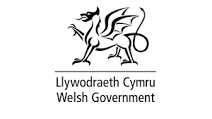PRESS RELEASE : Major international study shows England’s 15-year-olds performing poorly in mathematics, science and reading [December 2010]
The press release issued by the Department for Education on 7 December 2010.
Michael Gove has today responded to the publication of the 2009 Programme for International Student Assessment (PISA) report which shows England continuing to slip in its international standing in mathematics, science and reading for 15-year-olds.
The report says that the best education systems around the world
- recruit and develop the best teachers
- allow greater freedoms for schools and leaders
- have clear standards, high expectations, and external exams
- have effective identification and sharing of best practice
- have clear, transparent and proportionate assessment and accountability systems
These are the very policies we are taking forward in our white paper, learning from the best of what works from around the world and applying it here.
Secretary of State for Education Michael Gove said:
Today’s PISA report underlines the urgent need to reform our school system. We need to learn from the best-performing countries.
Other regions and nations have succeeded in closing the gap and in raising attainment for all students at the same time. They have made opportunity more equal, democratised access to knowledge and placed an uncompromising emphasis on higher standards all at the same time. These regions and nations – from Alberta to Singapore, Finland to Hong Kong, Harlem to South Korea – should be our inspiration.
While each of these exemplars has their own unique and individual approach to aspects of education, their successful systems all share certain common features. Many have put in place comprehensive plans for school improvement which involve improving teacher quality, granting greater autonomy to the front line, modernising curricula, making schools more accountable to their communities, harnessing detailed performance data and encouraging professional collaboration. It is only through such whole-system reform that education can be transformed to make our nation one of the world’s top performers.
England has continued to fall in the PISA rankings, meaning that in just nine years we have dropped from 7th to 25th in reading, 8th to 27th in mathematics and 4th to 16th in science. We have been overtaken by countries such as Poland, Iceland and Norway. This is despite England spending far more on education than comparable nations such as Germany.
And the report worryingly shows that England has relatively high numbers of low-performing pupils compared to countries like Australia, Canada and Finland. We are also less successful at overcoming the effects of social background than countries such as Canada and Japan, meaning that the poorest children in England are up to 2 full years behind their wealthier peers.
Schools minister Nick Gibb added:
I’m concerned that almost 40% of pupils in England never read for enjoyment. The difference in reading ability between these pupils and those who read for 30 minutes per day was equivalent to a year’s schooling.
By far the most popular activities recorded for our 15-year-olds involved communication either through email or online chat. Of course this has its place and it’s good that our young people have these skills in the computer age, but we cannot allow our youngsters to neglect the basic hobby of picking up a book and reading it simply for the enjoyment of it.
We need to reform English. The great tradition of our literature should be at the heart of school life. Our literature is the best in the world and we should be proud if it. But thousands of children – including some of our very brightest – leave school unable to compose a proper sentence, ignorant of basic grammar, incapable of writing a clear and accurate letter. We will change this as an absolute priority.
The most striking high performer is the newcomer to PISA, Shanghai China, which tops the tables across all three subjects. Their pupils are a full two-and-half years ahead of ours in mathematics.



